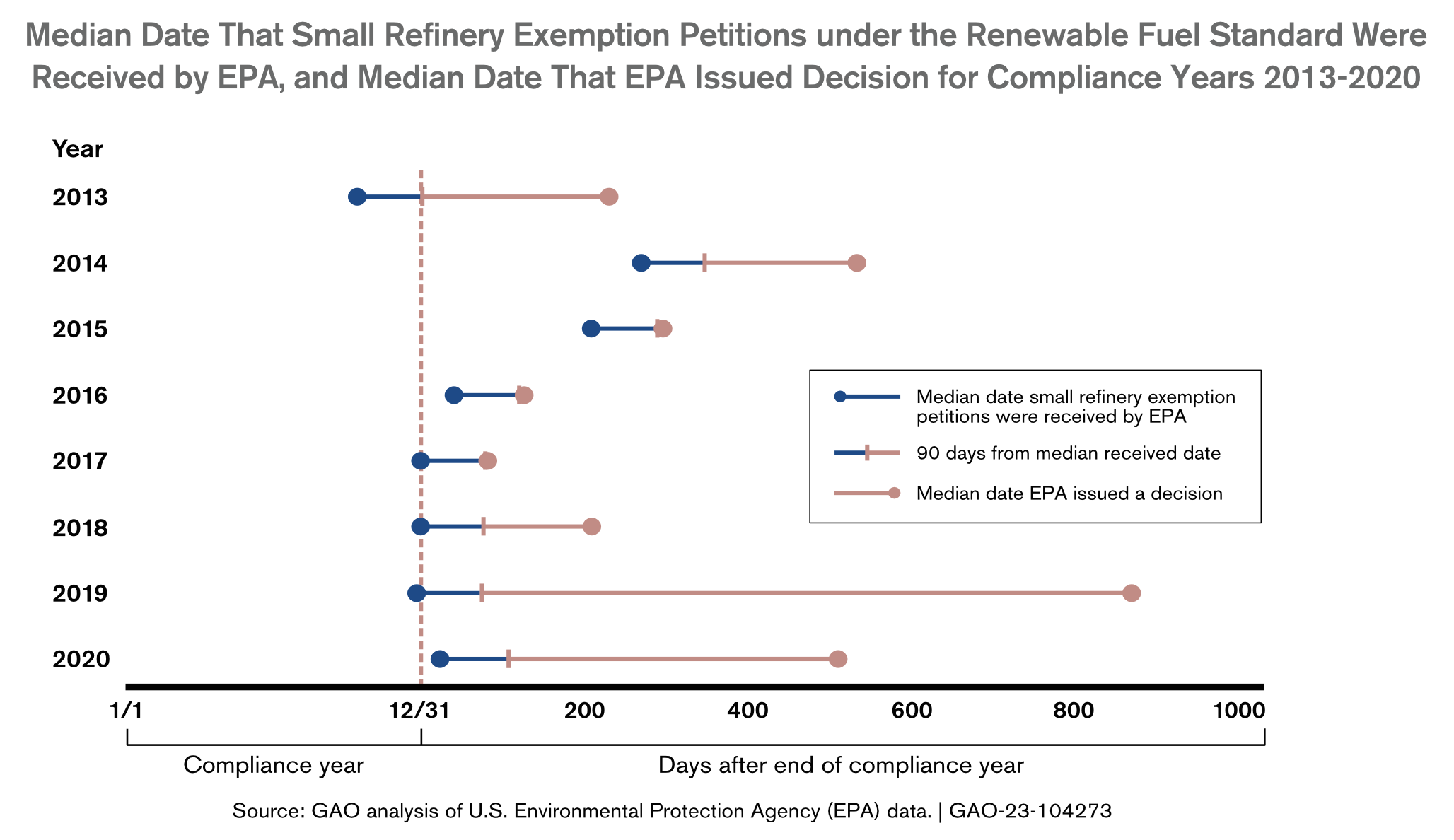GAO discovered that smaller oil refineries pay more for renewable identification numbers (RINs)
The Government Accountability Office (GAO) released its report reviewing the Environmental Protection Agency (EPA) and Department of Energy’s (DOE) implementation of the Small Refinery Exemption Program (SRE).
After a detailed investigation, the GAO discovered that smaller oil refineries pay more for renewable identification numbers (RINs) to comply with the Renewable Fuel Standard program (RFS) compared to larger integrated oil companies. Although many small refineries look to the SRE program for assistance and RIN requirement waivers, the EPA and DOE have failed to provide consistent guidelines for providing these much-needed exemptions. This, as well as market forces and frequent regulatory changes, has caused a considerable number of small refineries to shut down throughout the years.
The GAO has found that neither the EPA nor DOE has policies and procedures set for administering the SRE program. The GAO stated that:
- EPA relies on a potentially flawed conclusion about RIN markets due to the fact that it has not fully assessed its underlying assumptions, and its assessment only analyzes a minuscule sample size of fuel markets.
- DOE’s approach for consulting exemption petitions has been proven to be outdated and no longer provides the necessary information to EPA in order to make proper decisions regarding exemption petitions.
- EPA has not identified the information necessary for small refineries to submit to prove that they would experience inordinate economic hardship due to the RFS compliance.
Without the appropriate policies and procedures in place for SRE consultation and decision making, EPA and DOE are unable to ensure that exemption decisions are consistent, just, and accurate, determined the GAO, leading to market uncertainty for small refineries and renewable fuel producers.

According to the report, EPA has issued exemption decisions after the 90-day deadlines 89 percent of the time (190 out of 214 decisions). In 5 of the 9 years GAO analyzed, EPA took more than 200 days to provide a decision for more than half of the petitions submitted. Representatives of one refinery stated that in 2017, the refinery received its exemption 10 business days before the RINs they purchased to meet the annual requirement would expire; with little time to sell the credits, the refinery lost $16 million on those RINs. (editor’s note: These delays continue. On November 4 the EPA extended its own deadline to propose biofuel requirements for a claimant that has already filed a complaint in response to the agency’s violations of statutory deadlines.)
In order to establish proper change and assistance for small refineries, the GAO has made seven recommendations, including:
- EPA reassess its conclusion that all small refineries recover their RFS compliance costs in the price of gasoline and diesel that they sell.
- The Secretary of Energy should develop an effective approach to consulting SRE petitions that provide EPA with useful information on disproportionate economic hardship.
- EPA should identify and communicate what information refineries need to submit to demonstrate disproportionate economic hardship.
- The Secretary of Energy should implement policies and procedures for its consultations with EPA on SRE petitions.
- EPA developing documented policies and procedures for SRE decision making.
- EPA developing procedures to ensure it meets all deadlines .
- EPA to assess the effect of small refinery exemption decision timing on the benefit provided to small refineries, as well as its effect on fuel markets, and reconsider petition requirements
The DOE agreed with GAO’s recommendations. However, EPA disagreed with the recommendation that they reassess its conclusion that small refineries recover their compliance costs. EPA conducted their own analysis and does not believe that the RIN price differentials between small and large refineries are significant enough to impact its evaluation of inordinate disproportionate economic hardships. EPA partially agreed to the rest of the recommendations with a few technical edits and has stated that it will, as appropriate, follow up on each recommendation as it continues to improve the program.


